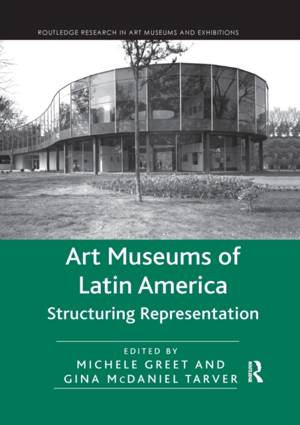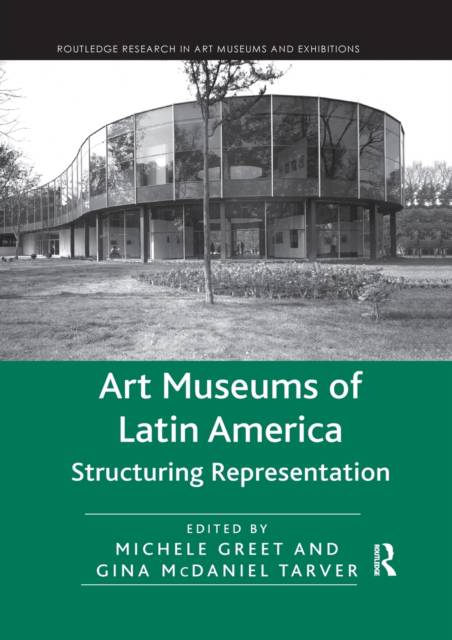
- Afhalen na 1 uur in een winkel met voorraad
- In januari gratis thuislevering in België
- Ruim aanbod met 7 miljoen producten
- Afhalen na 1 uur in een winkel met voorraad
- In januari gratis thuislevering in België
- Ruim aanbod met 7 miljoen producten
Art Museums of Latin America
Structuring Representation
Omschrijving
Since the late nineteenth century, art museums have played crucial social, political, and economic roles throughout Latin America because of the ways that they structure representation. By means of their architecture, collections, exhibitions, and curatorial practices, Latin American art museums have crafted representations of communities, including nation states, and promoted particular group ideologies. This collection of essays, arranged in thematic sections, will examine the varying and complex functions of art museums in Latin America: as nation-building institutions and instruments of state cultural politics; as foci for the promotion of Latin American modernities and modernisms; as sites of mediation between local and international, private and public interests; as organizations that negotiate cultural construction within the Latin American diaspora and shape constructs of Latin America and its nations; and as venues for the contestation of elitist and Eurocentric notions of culture and the realization of cultural diversity rooted in multiethnic environments.
Specificaties
Betrokkenen
- Uitgeverij:
Inhoud
- Aantal bladzijden:
- 274
- Taal:
- Engels
- Reeks:
Eigenschappen
- Productcode (EAN):
- 9780367667009
- Verschijningsdatum:
- 30/09/2020
- Uitvoering:
- Paperback
- Formaat:
- Trade paperback (VS)
- Afmetingen:
- 174 mm x 246 mm
- Gewicht:
- 489 g

Alleen bij Standaard Boekhandel
Beoordelingen
We publiceren alleen reviews die voldoen aan de voorwaarden voor reviews. Bekijk onze voorwaarden voor reviews.








